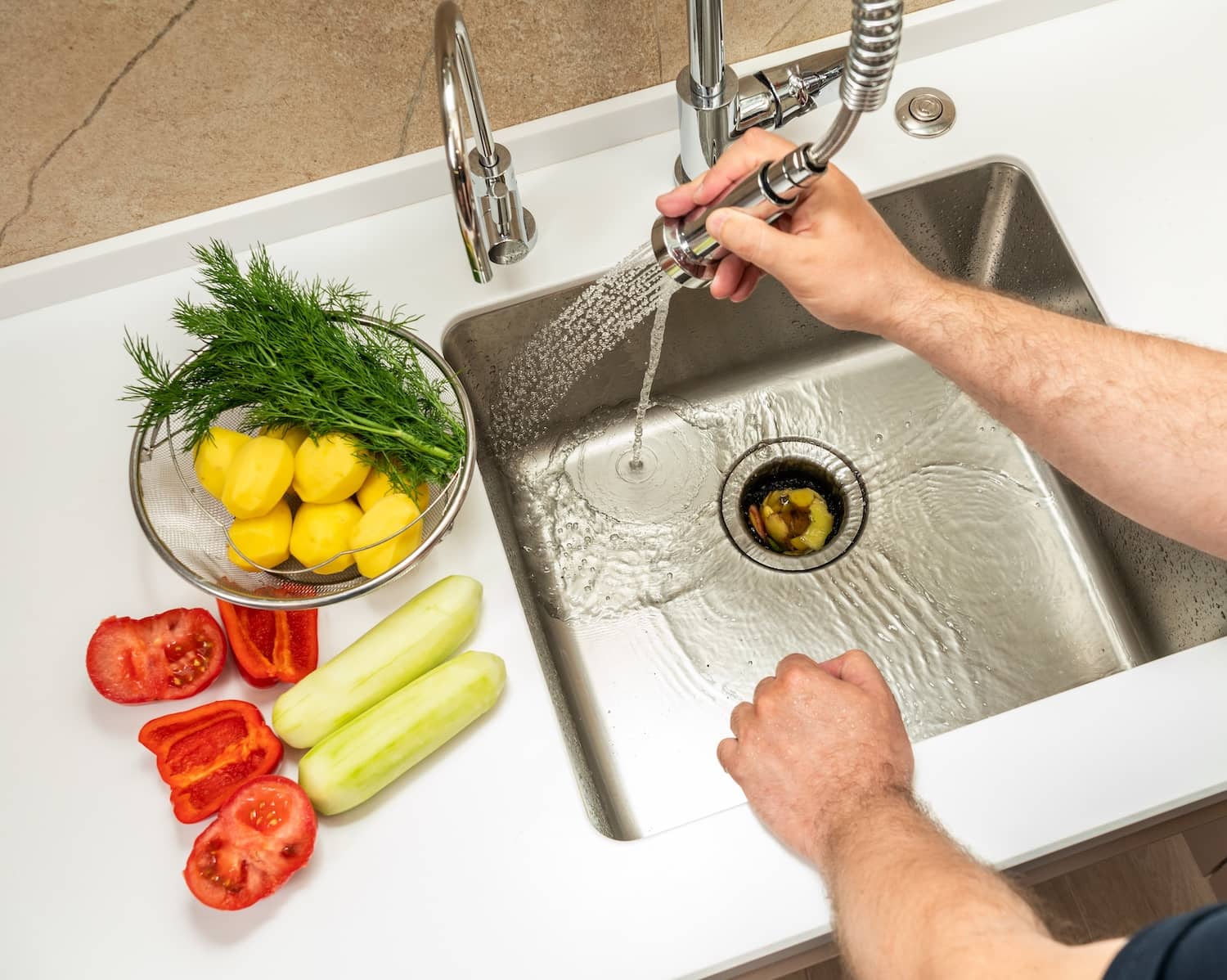Top Methods for Resolving a Leak in Your Garbage Disposal
Top Methods for Resolving a Leak in Your Garbage Disposal
Blog Article
Just how do you actually feel on the subject of Tips on Fixing a Leaking Garbage Disposal?

Waste disposal unit are vital cooking area devices that aid in throwing away food waste efficiently. Nonetheless, a leaking garbage disposal can be an irritating and untidy problem to take care of. Fortunately, several leaks can be taken care of easily with a few straightforward steps. In this short article, we will certainly go over how to repair a dripping waste disposal unit effectively.
Introduction
Garbage disposals are set up under kitchen area sinks and are created to shred food waste right into smaller items, enabling it to go through the pipes system easily. While these tools are typically reliable, leakages can occur with time because of damage, loose links, or damages to the system.
Common Reasons For Leakages in Trash Disposals
Worn Seals and Gaskets
Seals and gaskets play a crucial role in stopping water from dripping out of the garbage disposal. Over time, these parts can weaken, leading to leakages around the disposal system.
Loose Connections
The links in between the garbage disposal and the pipes system can end up being loosened gradually, causing water to leakage out during procedure.
Cracks or Holes in the Disposal Device
Physical damage to the garbage disposal, such as cracks or holes in the housing, can additionally cause leaks.
Recognizing the Resource of the Leakage
Before attempting to take care of a dripping garbage disposal, it is necessary to recognize the source of the leak. This can usually be done through aesthetic examination or by carrying out simple tests.
Visual Inspection
Check the garbage disposal system carefully for any kind of indications of water leak. Pay attention to areas around seals, gaskets, and connection points.
Examining for Leakages
One means to examine for leakages is by running water via the disposal device and checking for any kind of noticeable indicators of leak.
Devices and Products Needed for Dealing With a Dripping Garbage Disposal
Before beginning the repair procedure, collect the essential tools and products, consisting of a screwdriver, adjustable wrench, plumbing's putty, substitute seals or gaskets, and epoxy or patching material for repairing fractures or holes.
Step-by-Step Overview to Repairing a Dripping Garbage Disposal
Shut off the Power
Prior to trying any repair services, guarantee that the power to the waste disposal unit unit is turned off to stop the threat of electrical shock.
Situate the Leak
Determine the precise place of the leakage and figure out the reason.
Tighten up Links
Utilize a wrench to tighten up any loose connections between the disposal device and the pipes system.
Replace Seals or Gaskets
If the leakage results from worn seals or gaskets, eliminate the old parts and change them with new ones.
Patching Fractures or Holes
For cracks or openings in the disposal system, use epoxy or a suitable patching material to secure the broken location.
Examining the Garbage Disposal After Repair Service
When the repair service is full, test the waste disposal unit by running water through it to ensure that the leakage has been solved.
Preventive Upkeep Tips to Avoid Future Leakages
To stop future leakages, it is important to do routine maintenance on your garbage disposal. This consists of maintaining it tidy, preventing putting non-food items or hard things down the disposal, and occasionally looking for leakages or other issues.
Verdict
Finally, taking care of a leaking waste disposal unit is a fairly simple process that can be completed with basic devices and products. By complying with the actions outlined in this short article and exercising preventive maintenance, you can maintain your garbage disposal in good working problem and avoid costly repair services in the future.
HERE’S HOW TO FIX YOUR GARBAGE DISPOSAL
WHAT TO DO IF SOMETHING IS STUCK IN YOUR GARBAGE DISPOSAL
If the impeller won’t turn, there’s probably something stuck in the disposal. It could be a steak bone or peach pit, although plumbers report pulling all sorts of inappropriate objects out of disposals, such as bottle caps or aluminum foil. Make sure power to the disposal is off, and look inside to see if you can see the source of the jam.
Never stick your fingers in a disposal. Pull out anything you see with tongs or pliers.
If the disposal still won’t work, it may be time to call a plumber or consider buying a new disposal. GEM Plumbing & Heating is here for all of your garbage disposal needs.
WHAT TO DO IF YOUR GARBAGE DISPOSAL DRAIN IS CLOGGED
Take everything out from underneath your sink and put a bucket or other container under your disposal to catch any water that drains out. Disconnect your disposal from the power supply. If it’s plugged into a wall outlet, unplug it. If it’s hardwired into an electrical box, go to the electrical panel and turn off the breaker for the disposal. Pour ¼ cup of baking soda into the drain, followed by ½ cup of white vinegar. Give the solution a few minutes to fizz and do its work. Look into the disposal with a flashlight to see if you can see an object that might be causing the clog. If you see it, remove it using tongs or pliers. MORE TIPS ON DEALING WITH A CLOGGED GARBAGE DISPOSAL
Never use drain cleaner in a garbage disposal. It can damage the plastic parts inside the disposal. You can also be splashed with the caustic liquid while working to clear the clog. Beware! Never stick your fingers into a garbage disposal. Trust us — not a good idea. In many instances, your dishwasher drains through your garbage disposal. This allows the disposal to grind any large food particles that may be drained out of your dishwasher. There are some jurisdictions, however, where the plumbing code prohibits such a connection. WHAT TO DO WHEN YOUR DISHWASHER DRAINS THROUGH THE DISPOSAL
Run some water in the sink so your plunger has at least a ½-inch of water to create a seal and plunge vigorously up and down several times. You may need to repeat this several times. Run hot water down the drain to clear any residue that remains.

Do you enjoy reading up on Why Is ? Leave a review down below. We will be pleased to hear your insights about this posting. We are looking forward to see you back again later on. Sharing is nice. One never knows, you may just be doing someone a favor. Thank you for your time. Visit again soon.
Visit Site Report this page